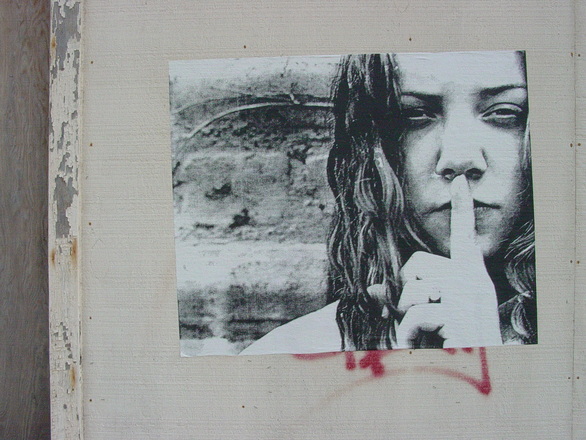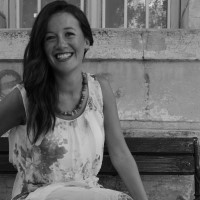Rape shouldn’t be a taboo word.
Through Kelly Oxford’s #notokay campaign, more than one million women have come forward and shared their stories of sexual abuse and assault. It has prompted articles and blogs worldwide from women speaking up about abuse that happened to them that are just not okay.
It was upon hearing Trump’s “hot mic” leak and Michelle Obama’s speech that triggered my own unravelling, lead me to finally say the words—I was raped.
These words shocked me then and I still feel anxious saying them now. The second that my article was published, I felt my familiar “friends”—fear, panic and shame crowd in on me.
The same voices that had stopped me from speaking out for so long were now saying, “What have you done, why would you let the world know this, what will your friends and family think, who are you to tell this story, you are no saint—look at all of your own shameful acts from the past?!”
Though for once, this familiar recital was short-lived.
It didn’t take long for the messages of support to flood in. Not only comments from friends and family asking if I was okay, or commending my bravery for speaking up, but also messages from other women who “understood” my story only too well.
I decided to share my story because something deep inside told me—I am not alone. Each message I received from women saying they have similar experiences strengthened this notion and simultaneously broke my heart. It runs so much deeper than I ever imagined.
Statistics are one thing (in most developed countries statistics say on average one in five women have experienced some form of sexual abuse), but real stories, from real women of all ages telling me their experiences and that they have never shared it with anyone out of fear and shame—this paints a whole other picture.
So why are we not speaking out?
Not long after my story was published, my father called. I love my father, we have always had an open and trusting relationship, but still—we have never spoken about sex, let alone rape, so I had no idea how he would react.
I felt tears prick my eyes and my cheeks flush red, I was ready for shame to drag me down, that was until I heard this words,
“So I read your story. Good on you for speaking up.”
There was no judgment like I expected and I had no reason to feel ashamed—it was not my fault (something I need to keep reminding myself of).
The air rushed out of me, a breath I had been waiting to exhale for a long time.
Besides telling my husband, the thought of telling my father was almost unbearable. We all have an image of how we would like people to see us, especially to our parents and admitting my own issues with alcohol and being raped was not what I had in mind.
Yet, after talking more about the experience, my father finished with this, “Rape shouldn’t be a taboo word; people need to know they can speak up.”
Not long after this conversation, I received this message from a friend:
“I have to be honest, I don’t read all of your blogs, but my baby does and she is 13, she just loves the way you write so I decided to read this one out loud yesterday to both my girls 19 and 13 years old as soon as the word “rape” came out of my mouth, tears fell from my eyes… it was raw and honest and just fucken chilling… it brought out words that have never been spoken before, so I salute you in your teachings.”
From all of the messages I received from women sharing their stories, this message choked me up just as much. I never thought about this perspective, of having this conversation openly with your children. I can only imagine looking into your two beautiful daughters’ eyes and saying the word rape. A word loaded with so much shame, hurt, anger, fear, aggression… I think it’s safe to say, it is a word we all wish we will never have to say, let alone hear coming out of our child’s mouth.
But what if it wasn’t?
It will always be an uncomfortable conversation due to its nature, but what if it wasn’t such a loaded word, what if it wasn’t taboo?
In Harry Potter Voldemort’s name was not to be spoken, no one wanted to acknowledge him. So, while everyone carried on pretending he didn’t exist, he gained strength and power in the shadows. Maybe, by keeping this word in the dark, we grant the perpetrators shadows to hide in and give power to the victim’s shame and fear. We cannot fight something we refuse to acknowledge.
If you have never experienced rape, assault or abuse and still have trouble saying the word rape imagine the weight of the word for those of us who have—it feels dirty, heavy, ugly, shameful… which is why most victims don’t speak up and blame themselves.
Dr. Brene Brown is a leading researcher-storyteller in shame and vulnerability, in her book Daring Greatly, Brown discusses James Pennebaker’s research where their findings suggest,
“Not discussing a traumatic or shaming event, or confiding it to another person can be more damaging than the actual event. Conversely, when people shared their stories and experiences, their physical health improved, their doctor’s visits decreased and they showed significant decreases in their stress hormones.”
I know this statement to be true, I lived it.
While the rape itself was awful, I can tell you now, the shame and self-blame I have carried around all of these years has been far more painful and damaging. It has lead me to question my self-worth, sent me into bouts of depression riddled with panic attacks and fuelled my issues with alcohol, sex and intimacy. Since sharing my story, I have received messages of love, support and understanding and I can finally say I have begun a healing process.
In theory, I know what consent looks and sounds like, I have a law degree for f*ck sake. But… I never spoke out about a lot of incidents, it wasn’t a conversation that was normal, it wasn’t the status quo. I held everything in, so by the time I was raped, not speaking about it was normal—as was self-blame and shame.
I have been having sex since I was 17, yet only now, married and into my 30s have I even thought about what sex means to me, what a healthy and positive sexual relationship is, what I am and am not comfortable with. I have never had these discussions out loud.
These kinds of conversations are 15 years too late for me and decades late for a lot of people, we cannot change this, but we can take a proactive stance here and now to encourage our children, friends and families to start talking about all aspects of sex and consent.
So, where to go from here?
We have a long way to go and education will play a major role in creating lasting positive change in our society, but hearing these words from my father and friend, I now see there is something we can all be doing:
We need to carry on this conversation.
It seems uncomfortable and confronting—going against the norm always is; but without a doubt, it is one of the most empowering conversations we can have. Sex is something (almost) all of us do, so why is it the most uncomfortable topic, why is there still so much taboo around sex, let alone rape? (Historically speaking the church has a large role to play in “sex and shame,” but that is a whole other topic).
For now, there is something we can all be doing.
Speak up.
Speak up when you see or hear something you don’t like.
Speak up when you experience something that isn’t okay.
Let’s turn this taboo subject on its head and bring it to the dinner table. Not just rape or sexual assault, but what about starting conversations of what a healthy sexual relationship is, of what consent looks and feels like—so children grow up knowing how to create safe and appropriate boundaries.
The more we normalize these conversations, the more empowered the next generation will be; there will be less “blurred lines” around consent, less chance for the victims to blame themselves and less shadows for the perpetrators to hide in.
We have a long way to go, but together we can make a difference. The conversation has been ignited, it is up to all of us to keep it going.
Speak up.
Author note: thank you to all of the women who have come forward, who have sparked this conversation, your bravery will help others realize they are not alone. It helped me.
Author: Tash Pericic
Image: Ket Quang / Free Images
Editor: Sara Kärpänen







Read 0 comments and reply